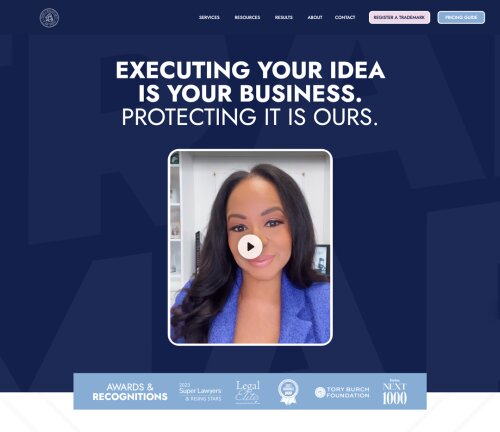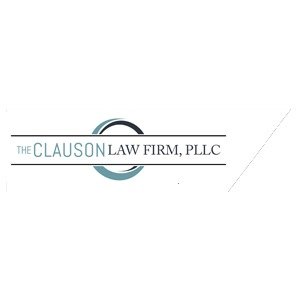Best FDA Law Lawyers in North Carolina
Share your needs with us, get contacted by law firms.
Free. Takes 2 min.
Or refine your search by selecting a city:
List of the best lawyers in North Carolina, United States
About FDA Law in North Carolina, United States
FDA Law refers to the body of statutes, regulations, and legal principles that govern the regulation of food, drugs, medical devices, cosmetics, and other products overseen by the U.S. Food and Drug Administration (FDA). In North Carolina, FDA Law impacts a wide range of industries, including pharmaceutical companies, food manufacturers, medical device firms, hospitals, and even farmers. The goal of FDA Law is to ensure that products are safe, effective, and honestly labeled for consumers. While FDA regulations are federal, North Carolina entities must comply with both federal requirements and state-specific laws that complement or enforce FDA standards.
Why You May Need a Lawyer
Individuals and businesses may require legal assistance related to FDA Law for a variety of reasons. Common scenarios include responding to FDA inspections or enforcement actions, seeking guidance for product approval or clearance, navigating product recalls, handling labeling or advertising issues, defending against allegations of regulatory violations, and ensuring compliance during the research and development of new products. Legal representation is also important when dealing with import or export regulations, resolving disputes with the FDA, or preparing for audits. Additionally, small businesses and startups often seek advice on how to bring their products to market while meeting all legal and regulatory requirements.
Local Laws Overview
In North Carolina, FDA Law is shaped by a combination of federal regulations and state laws. State agencies such as the North Carolina Department of Agriculture and Consumer Services and the North Carolina Department of Health and Human Services collaborate with the FDA to enforce relevant standards. North Carolina law often mirrors federal law, but there are local nuances, including specific registration or licensing requirements for certain products and facilities. The state enforces food safety laws, oversees the sale and distribution of pharmaceuticals, and has regulations governing the practice of pharmacy. Additionally, North Carolina requires certain professionals and businesses to report adverse events and comply with strict recordkeeping policies. Anyone involved in FDA-regulated industries must be aware of these local requirements as well as how they interact with federal law.
Frequently Asked Questions
What does FDA Law cover in North Carolina?
FDA Law governs food safety, drug approval and distribution, medical devices, cosmetics, dietary supplements, tobacco products, and more. In North Carolina, businesses and individuals must comply with both federal FDA rules and state-specific public health laws.
Do I need FDA approval before selling food, drugs, or medical devices in North Carolina?
Yes, most products regulated by the FDA require approval or clearance before being sold nationally or in North Carolina. The specific requirements vary by product category, and additional state licenses or registration may be required.
What agencies enforce FDA-related laws in North Carolina?
The U.S. FDA is the primary agency, but state agencies such as the North Carolina Department of Agriculture and Consumer Services and the North Carolina Department of Health and Human Services enforce local food and drug safety laws.
What should I do if I receive an FDA warning letter or inspection notice?
It is important to respond quickly and thoroughly. Consulting an attorney experienced in FDA Law is highly recommended to ensure your response is adequate and to mitigate any potential penalties or enforcement actions.
Are there specific state licenses required for food or drug businesses in North Carolina?
Yes, many food and drug manufacturers, processors, distributors, and retailers must obtain state licenses in addition to complying with FDA requirements. These can include food establishment permits, drug distribution licenses, and facility registrations.
How does North Carolina handle recalls of FDA-regulated products?
Recalls are typically initiated at the federal level by the FDA, but North Carolina authorities may assist or independently require recalls under state law to protect local consumers. Businesses are expected to notify relevant state agencies and cooperate fully during the process.
Can I market dietary supplements in North Carolina without FDA approval?
While dietary supplements do not require FDA approval before being marketed, they must comply with labeling, safety, and quality standards set by federal and state law. Misleading statements or unapproved health claims are prohibited.
Is cannabis or CBD regulated under FDA Law in North Carolina?
Yes, products containing cannabis or CBD are subject to FDA oversight, particularly if marketed as food or supplements. Additionally, North Carolina law tightly regulates these products, and only specific uses are permitted by state law.
What should healthcare providers know about FDA Law compliance in North Carolina?
Healthcare providers must ensure that medications, devices, and procedures comply with FDA standards and any relevant state laws, including reporting requirements and patient safety mandates.
How can an attorney help with FDA matters in North Carolina?
An attorney can assist with compliance strategies, regulatory submissions, responses to FDA or state inspections, product recalls, contract review, labeling and advertising review, and defending against enforcement actions or litigation.
Additional Resources
People seeking help with FDA Law in North Carolina may find the following resources useful:
- U.S. Food and Drug Administration (FDA) - for federal regulations and guidance
- North Carolina Department of Agriculture and Consumer Services - food safety, licensing, and inspection information
- North Carolina Department of Health and Human Services - regulation of pharmacies, health products, and reporting of adverse events
- North Carolina State Bar - for finding attorneys experienced in regulatory law
- North Carolina Biotechnology Center - support for medical device and pharmaceutical companies
Next Steps
If you need legal assistance with FDA Law in North Carolina, begin by gathering all relevant documents, such as correspondence from regulatory agencies, inspection reports, product labels, and licenses. Identify your specific issue or question and reach out to a qualified attorney who specializes in FDA Law and understands the local regulatory landscape. Legal professionals can guide you through compliance, representation during agency interactions, and crafting a strategic response to any enforcement issues. You may also consider contacting professional organizations or local regulatory agencies for basic guidance before scheduling a legal consultation. Taking prompt action can protect your business, reputation, and ensure ongoing compliance with FDA and North Carolina regulations.
Lawzana helps you find the best lawyers and law firms in North Carolina through a curated and pre-screened list of qualified legal professionals. Our platform offers rankings and detailed profiles of attorneys and law firms, allowing you to compare based on practice areas, including FDA Law, experience, and client feedback.
Each profile includes a description of the firm's areas of practice, client reviews, team members and partners, year of establishment, spoken languages, office locations, contact information, social media presence, and any published articles or resources. Most firms on our platform speak English and are experienced in both local and international legal matters.
Get a quote from top-rated law firms in North Carolina, United States — quickly, securely, and without unnecessary hassle.
Disclaimer:
The information provided on this page is for general informational purposes only and does not constitute legal advice. While we strive to ensure the accuracy and relevance of the content, legal information may change over time, and interpretations of the law can vary. You should always consult with a qualified legal professional for advice specific to your situation.
We disclaim all liability for actions taken or not taken based on the content of this page. If you believe any information is incorrect or outdated, please contact us, and we will review and update it where appropriate.
Browse fda law law firms by city in North Carolina
Refine your search by selecting a city.













